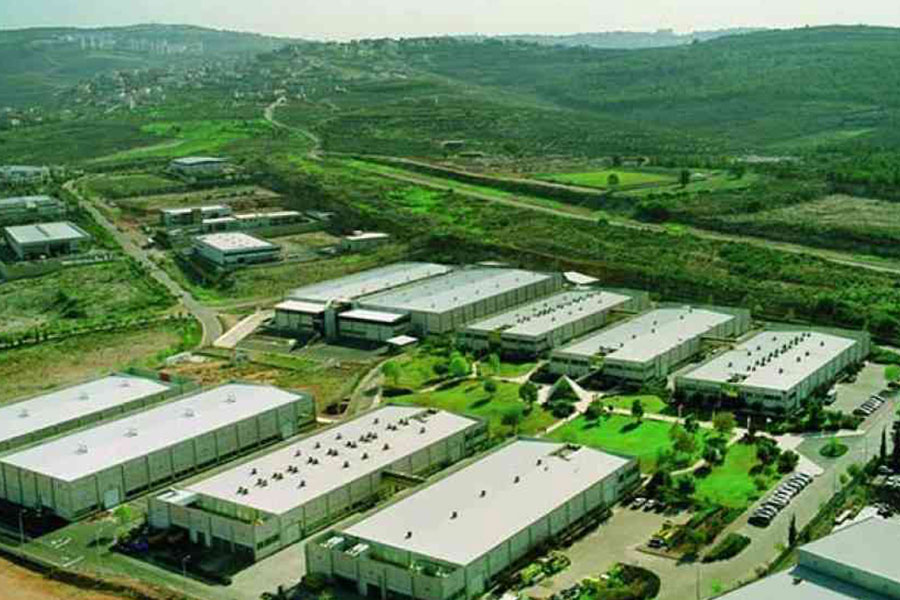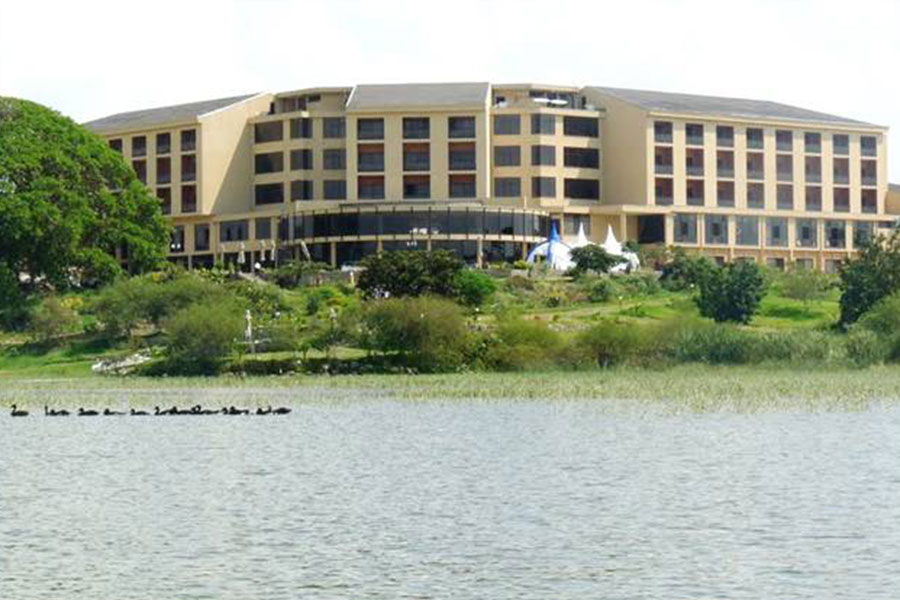
Fortune News | Sep 18,2022
Jan 30 , 2021.
There has been no American envoy serving in Ethiopia who has seen so much within such a short time as Michael Raynor has. To much of it, he gave his full support. A career diplomat and specialist on Africa, Ethiopia was his second assignment to serve as an Ambassador, appointed in 2017, when Ethiopia was going through its most delicate time. Popular discontent led to unrelenting protests, pushing the EPRDFites to swim or sink. They chose to swim until they were made to sink by the very person they voted for chairman.
Bidding farewell last week, he was given an audience not by the Prime Minister but by Deputy Prime Minister Demeke Mekonnen, who is also moonlighting as a foreign minister. Ambassador Raynor leaves Ethiopia in a much more precarious situation than when it welcomed him. Ethiopia is at war with itself, forcing tens of thousands to flee, millions to be food insecure, and unknown numbers to die.
Together with his boss, Tibor Nagy, who previously served as an ambassador to Ethiopia, Raynor gave his tactful blessing to the military conflict in the Tigray Regional State when it broke out in November 2020. From the outset, then Secretary of State Mike Pompeo tweeted that the TPLF had attacked the Ethiopian National Defense Forces, provoking the federal government to declare what Addis Abeba saw as a quick and surgical law enforcement operation. Messieurs Nagy and Raynor did not see the need for attempts to bring the warring parties to negotiate initially.
Nagy dismissed the idea of equivalency between the federal government and TPLF in charge of the Tigray Regional State. He saw the latter as a faction of the government running a region in Ethiopia that "has decided to undertake hostilities against the central government.” He chose to see the military conflict in a positive light, convinced that it "has brought the Ethiopian nation together . . . because this has really stoked Ethiopian nationalism, and hopefully that – those positive forces will remain.”
Both diplomats brushed aside the prospect for a negotiated settlement, seeing both sides' determination to see the military conflict through.
“Neither side felt they could articulate a basis for a negotiated or a mediated solution,” Raynor said during a press briefing, held virtually.
Nor did the Ambassador seem to feel it either.
Last week, Raynor was a more worried person than the bullish demeanor he exuded a few months ago. Speaking to the local media, he was concerned about the spawning ethnic violence across the country and alarmed by "extrajudicial killings and other sporadic violence" in Tigray Regional State, long after federal authorities declared victory. Indeed, in particular, the situation in Tigray is best captured by Michelle Bachelet, chief of the UN Commission on Rights: It is "heartbreaking as it is appalling."
The Ambassador and Bachelet are now in the long and growing list of people across the world calling for the parties in the conflict to cease hostilities, ensure the protection of civilians, allow full and safe access to humanitarian work, and uphold international human rights laws. The pressure for independent international investigations on reports of atrocities, sexual violence, and human rights violations in Tigray and other places is not relenting. Neither will it be.
Raynor`s public statement in showing how much Washington is "troubled by the activities of Eritrean actors in Tigray region" would be one that is the most unpleasant for Addis Abeba to hear. Ambassador Raynor's dramatic change of position only reflects the change in policy with the arrival of the Joseph Biden administration. It was ironic that the day Americans went to the polls to cast their votes and global attention was fixated on it that the war broke out in Tigray.
Not surprisingly, the recent presidential election in the United States was rocky, and one of the most consequential acid tests to democratic institutions a mature democracy has ever seen. But Biden has been inaugurated as President, following a bumpy transfer of power, unusual for American political culture, and to the disbelief of the world.
The United States has a disproportionate sway over every other country globally, even as the gap is thinning. It built the current international order; has a significant influence in multilateral institutions such as the United Nations and the World Bank; its corporations mostly run the means of communications in the digital space; and has more military bases in other countries than Britain, France and Russia combined. As the presidential election went on, and now with the Senate confirmations, the world watched very closely.
Ethiopia is no different. With the international media having portrayed the federal government negatively in its military operations in the north against the Tigray forces - deserved or not - there is a great deal of interest in how the Biden administration will respond.
Times have changed. Addis Abeba may not have as aloof or even as friendly a partner in Washington as during the Trump administration. The Democrats now control both legislative houses, however narrow the margin, and the White House. Their tone is growing critical of Prime Minister Abiy's administration, as statements from the Senate confirmations show.
The newly confirmed Secretary of State, Anthony Blinken, called for accountability for the "atrocities directed at people in Tigray," and reiterated deep concerns for the situation there. This contrasts with the government’s assertion of an improving humanitarian and security situation in the region.
Biden’s nominee for US Ambassador to the United Nations, Linda Thomas-Greenfield, was most forthcoming in her testimony on how the humanitarian situation unfolding in Tigray has her very worried. She joined a growing and every louder cry across the world that Ethiopians are, in her own words, "in the middle of a war against their own people."
If confirmed as ambassador, Greenfield wants to have a “very frank and open discussion” with Prime Minister Abiy to “stop what they are doing and stop the fighting.”
But the most worrisome to Addis Abeba should be her determination to see the United Nations take this situation on.
The turnaround in rhetoric from Washington has not gone unnoticed. This would mean that the Ethiopian government would be starting in what is at least a colder climate with the new administration, complicating its foreign policy objectives and domestic priorities. Two critical factors may determine the relationship going forward.
One is the US strategic interests and how Ethiopia figures into its overall global foreign policy. The other is the situation in the Tigray region and whether or not it improves.
Boasting the second largest population and the third biggest economy in Sub-Saharan Africa, it is reasonable to believe Ethiopia remains an important strategic partner for the US to insist on close relations. It is hard not to imagine American aversion to allowing it to be in China's sphere of influence at such a juncture. China will undoubtedly feature as prominent in the minds of those in the American foreign policy establishment during Biden's administration as has been the case with his predecessor.
Addis Abeba may have ground to build on, especially on climate policies, another priority for the new US administration. The Prime Minister has proffered environmental policies - from mass tree-planting campaigns to climate-friendly tariffs - to see eye to eye with the Biden administration. Greater integration into the world economy and policies to boost the private sector is also actively encouraged by the multilateral institutions the United States continues and will continue to influence.
As strong a determinant of US-Ethiopia relations will be the situation in the Tigray region. The United States wants its strategic support to achieve stable and, if possible, democratic states. But a flow of refugees, continued fighting and self-induced humanitarian crises is no way of invoking confidence with partners. Ethiopia ceases to be an essential ally relied upon to keep the peace in the region.
Addis Abeba can change course to find common ground to work with the Biden administration. The issues over which the latter are insisting are what should be Ethiopia's government priorities. Allowing unfettered humanitarian access into the region remains top on the agenda. It is to the interest - not to mention the population that is caught up in the crossfire - of the government to facilitate access. It would be a tragedy for the country to slide back into mass starvation after decades of effort to change such a grim reality.
No less vexing is the presence of Eritrean soldiers on Ethiopia's soil. Ethiopia keeps denying it, but US diplomats have confirmed it, and even Raynor has called for their withdrawal. His words should be heard. Much credibility can be restored if Addis Abeba regains confidence in allowing international investigations for alleged atrocities in Tigray by all parties.
Such push by the Americans should be welcomed. The two countries may have their differences, but it is hard to claim that the United States may not wish Ethiopia well. But if Addis Abeba departs too much from the US strategic interest, and is too unstable to be reliable, it certainly will lose the most powerful hegemon history has ever known as a partner.
PUBLISHED ON
Jan 30,2021 [ VOL
21 , NO
1083]

Fortune News | Sep 18,2022

Featured | Sep 04,2021


Viewpoints | Apr 24,2021

Sunday with Eden | Dec 07,2019

Fortune News | Apr 09,2022

Agenda | Dec 29,2018

Viewpoints | Apr 17,2020

Fortune News | Feb 11,2023

Commentaries | Sep 14,2024

My Opinion | 131586 Views | Aug 14,2021

My Opinion | 127942 Views | Aug 21,2021

My Opinion | 125917 Views | Sep 10,2021

My Opinion | 123541 Views | Aug 07,2021

Dec 22 , 2024 . By TIZITA SHEWAFERAW
Charged with transforming colossal state-owned enterprises into modern and competitiv...

Aug 18 , 2024 . By AKSAH ITALO
Although predictable Yonas Zerihun's job in the ride-hailing service is not immune to...

Jul 28 , 2024 . By TIZITA SHEWAFERAW
Unhabitual, perhaps too many, Samuel Gebreyohannes, 38, used to occasionally enjoy a couple of beers at breakfast. However, he recently swit...

Jul 13 , 2024 . By AKSAH ITALO
Investors who rely on tractors, trucks, and field vehicles for commuting, transporting commodities, and f...

Jun 29 , 2025
Addis Abeba's first rains have coincided with a sweeping rise in private school tuition, prompting the city's education...

Jun 29 , 2025 . By BEZAWIT HULUAGER
Central Bank Governor Mamo Mihretu claimed a bold reconfiguration of monetary policy...

Jun 29 , 2025 . By BEZAWIT HULUAGER
The federal government is betting on a sweeping overhaul of the driver licensing regi...

Jun 29 , 2025 . By NAHOM AYELE
Gadaa Bank has listed 1.2 million shares on the Ethiopian Securities Exchange (ESX),...